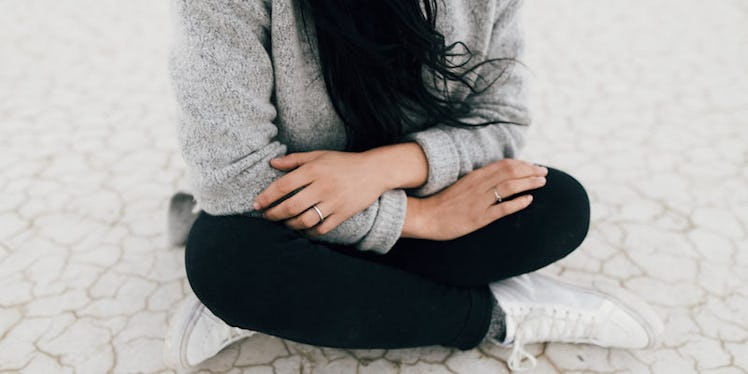
The Hardest Part Of Recovery Is Realizing Who You Are Without Your Addiction
I don't want to make myself sick anymore, and I don't want to make myself less anymore.
But, there are some days I still want to talk about it.
I eat fairly normally now, but sometimes I can't stop thinking about the nights I spent lying awake with my stomach empty and my head spinning.
“Wasn't I crazy?” I say to anyone who will listen.
Everyone recovers from a disorder or addiction differently.
Some people recover, and you never even knew they were once suffering. Some people recover and want to talk about it.
But, I feel like there is a point when you have to just let it go.
I could write essays and poems and novels about my eating disorder, but the truth is, by letting it be my inspiration, I am continuing to keep it alive, even in a small, strange way.
By keeping it in my thoughts and by telling the stories of my darkest moments, I am keeping my eating disorder part of who I am.
I know that talking and writing about it are helpful for recovery, but there is a point when you have to stop giving it time in your life and let it be a part of the past.
Even though I eat, even though I don't want to be sick anymore and even though I am happy now, a tiny part of me has still been holding on to who I used to be.
It's like a safety net I keep in the back of my mind. I can remember exactly how awful it felt to be that way, but I can also remember why it was so easy and addicting.
I also know I will never let my eating disorder win again. I know I will never let being skinny or empty be more important than being strong, than being a good friend, sister, daughter and person or than being happy.
But sometimes, when you are recovering from an illness or an addiction, even if you have a lot going on in other aspects of your life, you are left with this strange emptiness and the thought, "What now?"
The hardest part of recovery is choosing it and continuing to choose it every single day, even on the days when you do not want to.
But the second hardest part is that after you recover, you kind of feel lost.
You are no longer the girl with the eating disorder. You are no longer the girl with the sad eyes and the blank stare.
So, who are you?
I think that is why relapse is common with any disorder or addiction.
I no longer spend my days counting every single thing that goes into my mouth, weighing myself constantly or thinking about ways to eat less.
I no longer stare at my body for hours in the mirror.
My mind is no longer clouded by lack of nutrients, and I am able to have clear thoughts and an improved memory.
I am no longer the girl with an eating disorder, but by keeping it a part of my life, I am the girl who used to have an eating disorder.
Sometimes that's OK.
It's good to share painful experiences and how I got the motivation to improve them in order to inspire and help others.
It's good to get it off my chest and share just how deeply painful my worst days were.
It's good to apologize for the ways I hurt others when I was hurting.
But eventually, I think it's important to get to a place where who I am is not defined by an eating disorder, an illness or an addiction at all.
This is kind of scary because for so long, I was the girl with an eating disorder, and then I was the girl who recovered from one.
Recovery is definitely something to be proud of, but it is imperative to focus on moving forward.
Who are you without your addictions, illnesses and disorders?
It's a necessary and difficult question to ask yourself when you're feeling really good about recovery from anything, and it's one I am still kind of trying to figure out the answer to.
But, for anyone who is in a similar place as I am, it's also important to remember that it's OK not to know who you are without them.
You just have to know you want to find out.